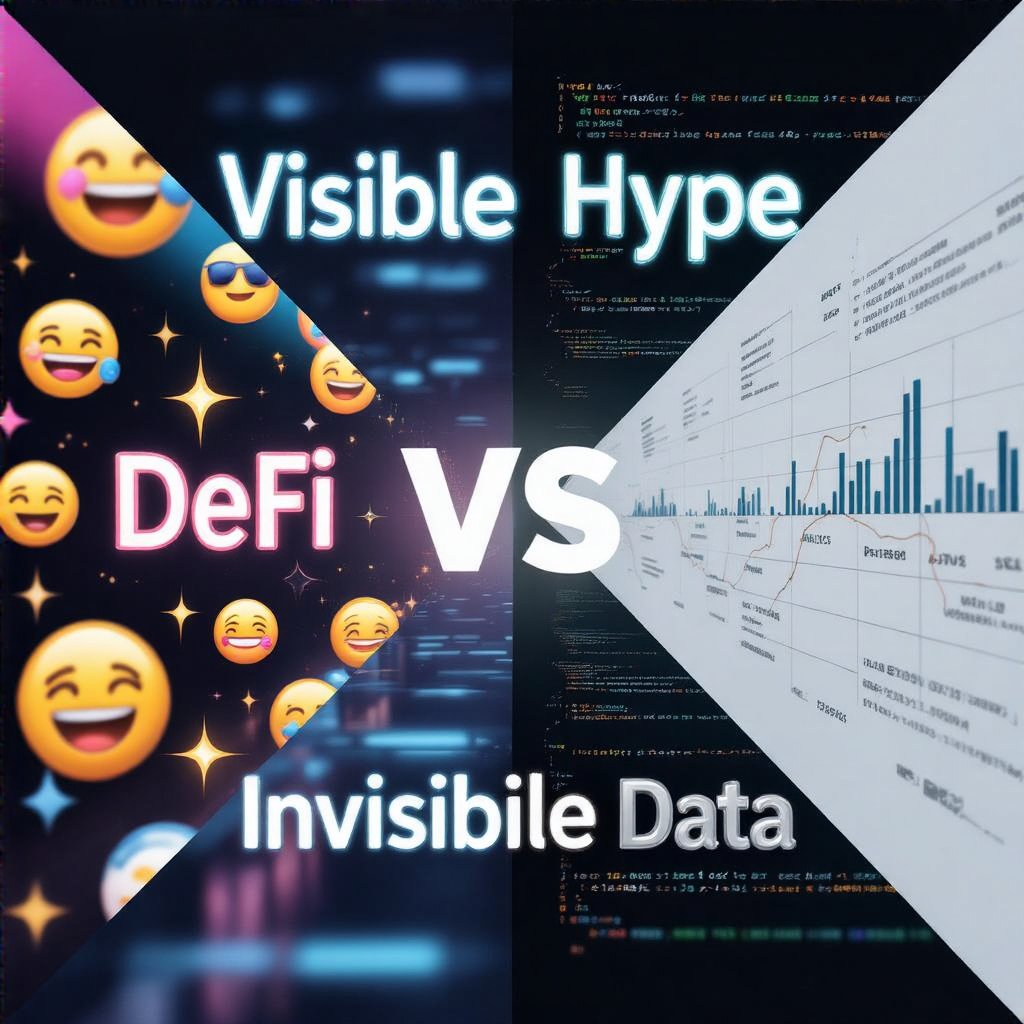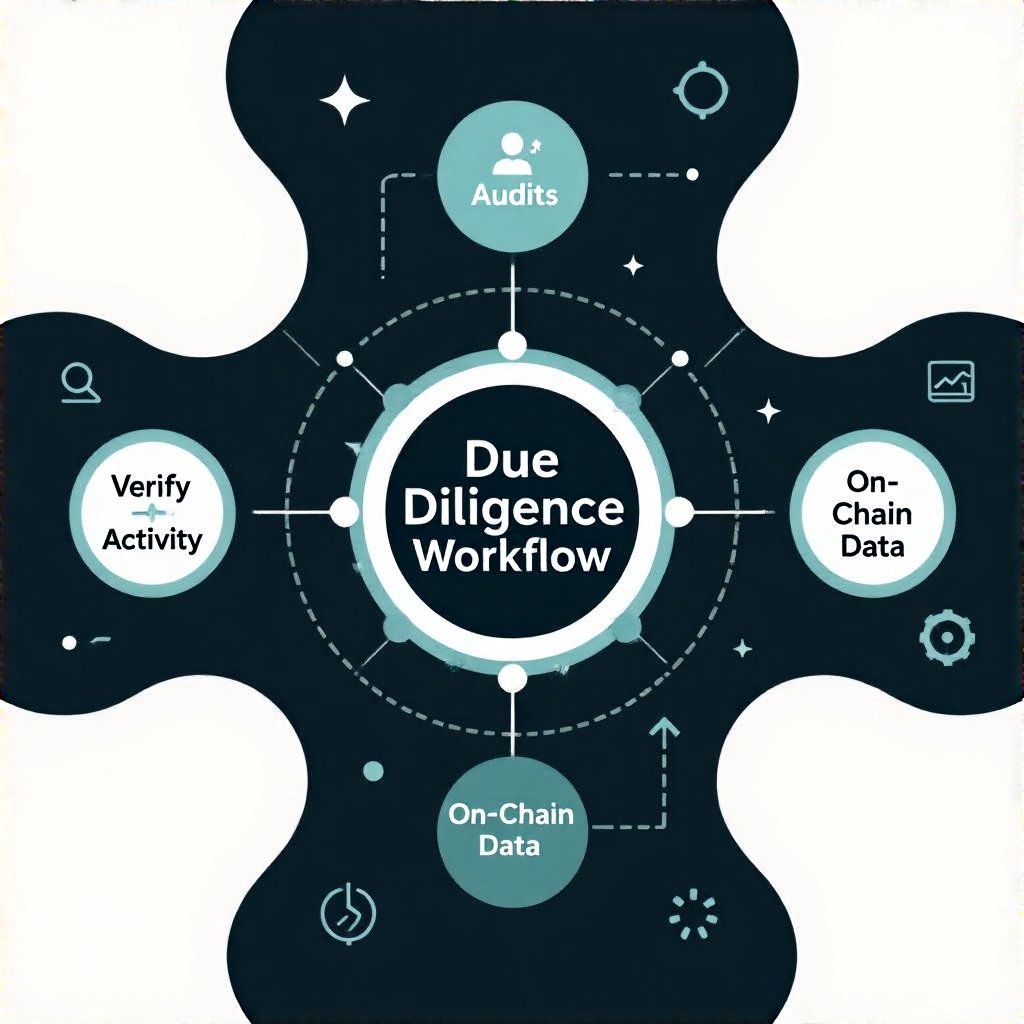The Risks of Anonymous Teams in DeFi Projects

In a market dominated by rapid launches and flashy narratives, anonymity can seem like a feature of decentralization. But beneath the hype, hidden risks emerge when teams stay unseen. This analysis blends data-driven insight with practical due diligence to reveal what anonymous teams mean for credibility, security, and investor outcomes.
- What Anonymity Means in DeFi
- Transparency vs. Hype: The Data Perspective
- Accountability Challenges in Anonymous Projects
- Evaluating the Credibility of Anonymous Crypto Projects
- Practical Due Diligence: Audits, Signals & Verification
What Anonymity Means in DeFi
Anonymous teams shield identities and track records, which can both empower decentralization and obscure motive. From a data detective perspective, we see anonymity as a variable that changes the signal-to-noise ratio on risk assessments. For some projects, it preserves novel governance; for others, it signals governance gaps that leave investors exposed. When due diligence uncovers no verifiable history, the digital echo chamber of hype becomes more dangerous.
As a reminder of how transparency influences trust, even a quick check into tokenomics and governance can reveal asymmetries. For instance, DeFi transparency remains a cornerstone of investor confidence. If you can't verify the leadership, you should treat claims with heightened scrutiny. For researchers seeking practical steps, see our token burns overview to understand how supply mechanisms relate to credibility.
Beyond narrative, there are concrete signals to observe: on-chain activity patterns, cadence of code commits, and formal governance mechanisms. When a team prefers anonymity, it becomes critical to corroborate findings with independent audits and community governance signals. For instance, some analysts rely on security audits as a partial counterbalance to undisclosed leadership.
Transparency vs. Hype: The Data Perspective
From a statistics-first viewpoint, a project’s true strength surfaces in the data: audit results, on-chain activity, and governance participation. Informed readers ask: does the hype align with verifiable outcomes? Our research emphasizes contrasting visible hype with invisible data—what the market says in whispers versus what the code and signals reveal. When we compare projects with opaque leadership to those with open governance, the data often favors the latter for long-term resilience.
Due diligence should blend external checks with internal signals. A practical approach is to triangulate on-chain signals, audit results, and community engagement. For example, reputable audits by firms like Halborn can demonstrate a commitment to security, even if the founders stay private. And for the curious reader, a quick look at due diligence techniques can sharpen your judgment.
Investors should also consider the governance model and how decisions are made when leadership is anonymous. If a project relies on informal chats rather than formal voting or documented roadmaps, the risk of misalignment grows. For a broader context, see discussions on exit-scam tactics and how they exploit informational asymmetries.

Accountability Challenges in Anonymous Projects
Accountability becomes nebulous when the team remains hidden. If a vulnerability or misstep occurs, investors have limited recourse. This opacity often creates a digital echo chamber, where hype drowns out the data that could warn participants. When teams stay anonymous, formal governance, accountability trails, and clear roadmaps may be absent, increasing the likelihood of scope creep or security gaps. In such cases, external verification through audits and on-chain evidence becomes the primary anchor for trust.
From a risk-management lens, an anonymous project should pass a higher bar for audits, bug bounties, and community-led governance. External resources can’t replace accountability, but they can help investors assess whether the project is open to scrutiny, rapid patching, and transparent updates. For a concrete external reference on risk indicators, see the discussion of tokenomics red flags and governance transparency in related analyses.
For historical context on reliable verification practices, see exit-scam pattern analyses and the broader discussion on real-world security postures documented in external audits.
Evaluating the Credibility of Anonymous Crypto Projects
Despite the risks, anonymous teams can succeed when there is robust community support, strong technical innovation, and disciplined verification. When evaluating such projects, consider:
- Independent security audits from reputable firms (security audits) that validate the smart contracts.
- Transparent code activity, like frequent GitHub updates and testnet deployments, coupled with an accessible whitepaper or roadmap.
- Quality of community signals: active discussion forums, governance participation, and responsiveness to security disclosures.
- The potential for redeeming credibility through verifiable history in related projects; for example, a credible founder track record can mitigate anonymity concerns, or a transparent audit trail can substitute for a disclosed leadership team.
| Pros | Cons |
|---|---|
| Promotes decentralization and open governance | Lack of verifiable leadership and history |
| Potential for rapid decentralization of decision-making | Higher risk of misalignment and mismanagement |
| Can attract niche communities with strong on-chain signals | Increased vulnerability to scams without audits |
In practice, we assess credibility by combining due diligence methods with formal verifications like external audits. If a project has undergone rigorous testing, it earns a stronger standing—even without visible leadership. For a broader governance perspective, see how credible projects balance transparency and innovation.

Practical Due Diligence: Audits, Signals & Verification
Effective evaluation blends on-chain data, independent audits, and community signals. For instance, statistical analysis of transaction flows can reveal unusual patterns (think wash trading rings in emblematic cases) that suggest hidden backdoors or governance capture. Network graphs help visualize relationships among developers, investors, and nodes, offering a more complete picture than a glossy whitepaper alone. Our approach emphasizes the contrast between visible hype and the invisible data—the kind of insight that separates warning signs from genuine opportunity.
To anchor your checks, rely on a mix of sources: external audits, reputable coverage, and verifiable on-chain activity. When in doubt, lean on established best practices and consult the broader ecosystem literature, including analyses of tokenomics and compliance. For external context, reputable sources like NIST provide foundational guidance on security controls, while general industry guidelines from OWASP outline how to design resilient systems. And for ongoing due diligence, you can explore our in-depth review of the BitCoinPay Trade Team through a dedicated case study linked earlier.
Internal due diligence should weave together on-chain data, developer activity, and community signals. For deeper checks, see the BitCoinPay Trade Team case and examine how vanity contract addresses can obscure or reveal intent in blockchain deployments.
Conclusion: Balancing Anonymity with Due Diligence
In the evolving DeFi landscape, anonymity can be both a feature and a risk. It may symbolize decentralization, yet it demands heightened due diligence and scrutiny. Investors should lean on external audits, robust on-chain data, and credible community reputation to assess such projects critically. The key is to see beyond the surface hype and examine the data-driven signals that reveal true security, governance, and value.
Frequently Asked Questions
- Is anonymity always a red flag?
- No. It raises risk, but strong audits, clear governance, and verifiable code can mitigate concerns.
- What concrete steps should I take before investing?
- Review independent audits, verify on-chain activity, check governance mechanisms, and consult credible external analyses.
- Where can I learn more about due diligence?
- See our guides linked throughout this article and explore external resources on security audits and governance practices.
